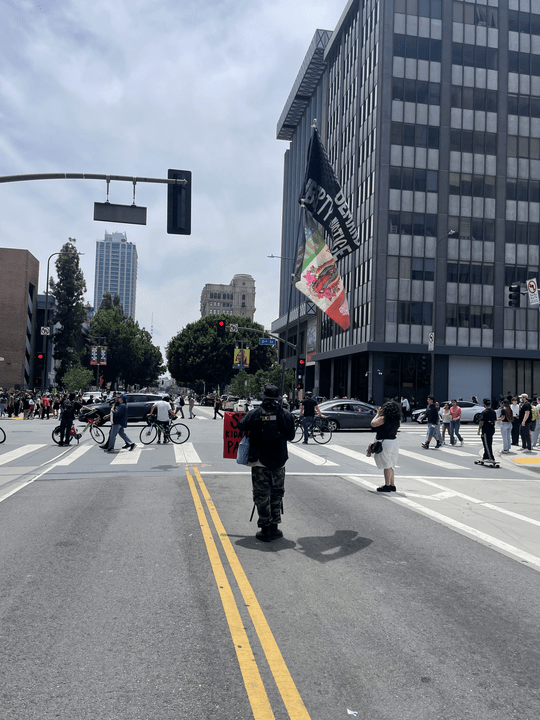Do you believe in defunding the police, abolishing Immigration and Customs Enforcement or endorsing Transgender rights? If your answer is yes, then you, my friend, are more than likely to be described by both the Republican Party and some Democratic Party members as woke.
Across partisan lines, the issue with being woke is not about supporting progressive principles. The Republican Party’s issue with woke is the perceived war on merit it created through the promotion of social justice values. In the Democratic Party, the intraparty conflicts that the word created contributed to the party’s lack of cohesion. A word that initially started as a petty insult quickly escalated to the Democratic Party’s struggle for united agreements due to the pejorative use of the word by Republicans.
A semantic pejorative is the process by which a word develops a negative meaning or connotation over time. According to UC Santa Barbara linguistic scholar Deandre A. Miles-Hercules, the original meaning of woke was tied to the anti-Black systems of oppression and the historical struggles of Black people. In other words, woke was used as a directive to remain aware or awake to the systems of oppression against Black people in the United States. For instance, following the unjust killing of Michael Brown in Ferguson, Mo., “stay woke” was used as a slogan to retain awareness of police brutality against Black people.
With its original meaning having been stripped away, the term went through a semantic bleaching, opening up a culture where everyone applied different meanings to the word. Thus, Republicans weaponized the term as a pejorative to criticize anyone who advocated for progressive values.
In efforts against wokeness, several Republican leaders have attacked the education system. The Ron DeSantis-endorsed Stop-Woke Act specifically prohibits diversity, equity, and inclusion (DEI) initiatives, along with race-based training, to prevent “any form of psychological distress.” The bill also bans both classic racism, the idea that there exists a superior race, and structural racism, the idea that racism is ingrained in U.S. institutions, from being taught in educational settings. President Donald Trump’s recent executive orders ending woke in the Artificial Industry (AI) by requiring AI companies that receive federal funding to remain politically neutral and refrain from implementing DEI, is another example of how woke is used to portray the Democratic party as out of touch.
The politicized, pejorative use of the word woke negatively impacts the public perception of the Democratic Party’s values, making them seem misaligned with the public’s main priorities. A poll conducted by The New York Times and Ipsos showed that many Americans believe that the Democratic Party is too prioritized on social justice issues and less prioritized on urgent matters such as the economy, inflation, healthcare, and immigration, which the public cares more about. Another poll conducted from May to June by Unite the Country, a Democratic super PAC, revealed how the Democratic Party’s credibility has plummeted since the 2024 election. The party was described as out of touch, woke and weak. The antagonization of woke has not only become a pejorative for the right, but it has also created confusion about what the Democratic Party stands for and campaigns on.
The political pejorative of woke has, in turn, created conflict in the Democratic Party. For instance, there is intraparty pressure to avoid identity politics, pressure to continue its opposition to racism and pull for the party to be more selective of the cultural issues they engage in. Some Democratic leaders have even believed that woke is bad, and that the label is causing the Democratic Party to lose support.
Take, for instance, Sen. Elissa Slotkin (D-Mich.), who believes that Democrats end Republican majorities in the House and Senate by eliminating the public perception of her party as “weak and woke.” Other Democrats believe that DEI programs are essential in combating systems of oppression, showing how woke-related issues are not something the party should stop endorsing.
The stigma around being woke has caused internal and outward confusion from an already fragmented Democratic party. A party that does not know what it stands for is easily pushed around when its identity is not firmly established. Social justice issues are now warped with a fear of being too woke for the mainstream, causing a complete lack of common goals within and a warped perception of what the party stands for.
Alex Alejo is an Opinion Intern for the summer 2025 quarter. He can be reached at aalejosa@uci.edu.
Edited by Joshua Gonzales



